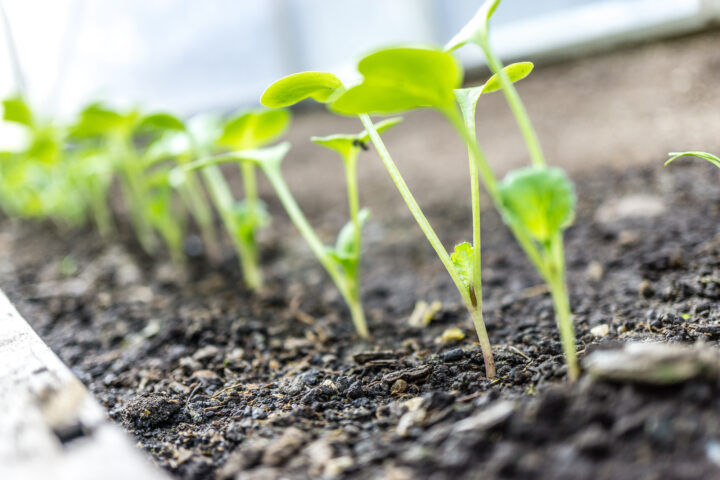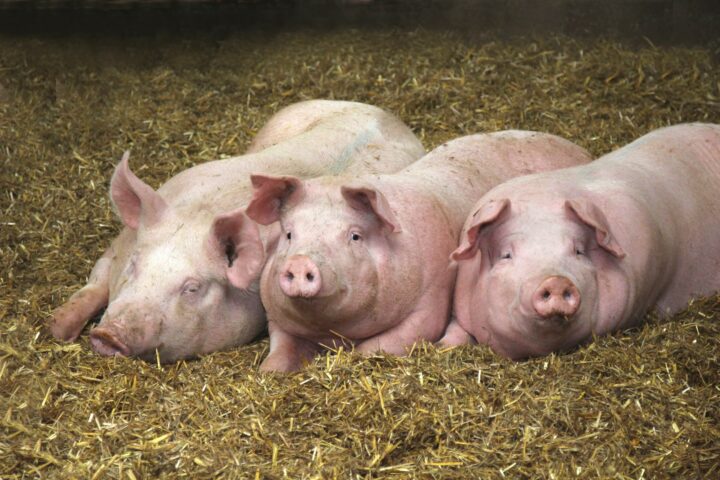
More agrobiodiversity thanks to genome editing
It is often wrongly claimed that new breeding technologies such as genome editing restrict diversity in the seed market. A new study shows that the opposite is the case. Genome editing promotes agrobiodiversity.
Thursday, September 19, 2024
When it comes to new breeding technologies (NBT), the debate is characterised by false narratives. For example, the claim that new breeding technologies promote a concentration on a few companies and varieties in the seed sector. Now, the association ‘Research for Life’ has published a paper that counters such statements on a fact-based level.
The conclusion: new breeding technologies do not restrict diversity in the seed market and even increase agro-biodiversity, as the author Prof. Dr. Sebastian Soyk, Professor of Plant Molecular Biology at the University of Lausanne, writes in the report. For example, genome editing is often used to increase the diversity of crops and strengthen their adaptability.
According to Soyk, the majority of calories consumed worldwide today come from just a handful of crop species. This makes food systems vulnerable to environmental changes, for example. Thanks to genome editing, beneficial properties of wild plants or properties of old crop plants that have been lost during intensive breeding over generations can be made accessible again.
An interesting approach here is so-called ‘de novo domestication’. In this process, key genes of domestication are specifically modified in wild plants using genome editing. In this way, targeted mutation has improved numerous characteristics such as growth habit, fruit size, flower number and nutrient content, without losing their resistance to disease. Similar techniques have also been applied to rice to breed higher-yielding and more resilient varieties.
University of Bern enables better varieties for small farmers
A comparable approach is used for so-called ‘orphan crops’. These are crops that have received little attention from modern plant breeding and have only been grown as niche crops. ‘Orphan crops’ often have rather low demands, but their quality and productivity can fluctuate greatly. Genome editing can help such varieties to flourish.
Research is already being conducted on the relevant issues: Prof. Zerihun Tadele of the University of Bern, for example, is working on improving the orphan crop tef. This is a staple food grown in Ethiopia. The project aims to increase the productivity and resilience of the plant. In particular, it addresses problems such as plant lodging and low yields. By using modern breeding techniques, such as genome editing, the team has managed to bring improved varieties of tef to market that benefit smallholder farmers and perform better in a range of environmental conditions.
As Prof. Dr. Sebastian Soyk goes on to write, there are also niche crops in Switzerland where the approach shows promise. Buckwheat and lupins, for example, could help to increase agro-biodiversity. Lupins are currently gaining in importance in efforts to increase the cultivation of plant proteins in Switzerland.
Alongside other old crops, lupins are therefore also part of a new Agroscope research project, ‘Arable Farming in Mountain Areas’ (2024-2026), which aims to increase local value creation with traditional varieties.
Using CRISPR/Cas, a team led by Lausanne researcher Sebastian Soyk has bred a tomato that breaks less quickly from the stem. This prevents the fruit from falling to the ground too early and spoiling. This and other examples of useful breeding for Swiss agriculture can be found in the article ‘Ten applications of new breeding technologies for Switzerland’.
Sources
Kindly note:
We, a non-native editorial team value clear and faultless communication. At times we have to prioritize speed over perfection, utilizing tools, that are still learning.
We are deepL sorry for any observed stylistic or spelling errors.
Related articles

Migros and the opportunities of genome editing
The demand for new breeding technologies is growing. Experts see an urgent need for action in order to utilise technological progress without jeopardising safety. Companies such as Migros also recognise the importance of these developments and are addressing the opportunities and challenges they bring. Meanwhile, contrary to scientific findings, opponents are continuing to tell the same horror stories as they did 30 years ago.

Organic farmer calls for genome editing for fruit growing
The high number of plant protection treatments is a major challenge for organic farmers. One of them is apple grower Marco Messerli from Kirchdorf BE. He has had to treat susceptible apple varieties with organic pesticides a total of 48 times. Too much, he thinks, and is now calling for the authorisation of new breeding methods. Experts agree with him.

Gene Editing for Stronger Supply Security in the UK
Russia’s invasion of Ukraine has led to a scarcity of wheat and big price increases for the staple on agricultural commodity markets. The United Kingdom wants to strengthen its domestic supply security by relying on more resistant crops. With this aim in mind, plans call for passing a new law that would allow cultivation of gene-edited plants. Agricultural productivity is once again becoming increasingly important in European countries. Switzerland also needs to produce more.

What’s Really in Your Shopping Basket
Genetic engineering in our shopping basket? Yes – and much more often than we think. Whether it’s pasta, bread or vegetables: many of the everyday products we consume come from mutation breeding, which involves altering the genome and is considered safe. It’s high time to debunk the common myths.

Genomic breeding methods are not given a chance to prove themselves
Modern genomic breeding methods are legally classified as genetic engineering – and are therefore still effectively blocked. Yet we have been eating genetically modified plants for decades, just under the label of “classical mutagenesis.” The new, more precise techniques are regulated more strictly than the old ones, even though they are considered safer from a scientific perspective. A contradiction that urgently needs to be corrected. The EU is setting a good example.

No Pig Business: Why Testicle-Free Boars Are a Clear Win for Animal Welfare
New breeding methods are opening up new possibilities in both plant and animal breeding. They allow targeted genetic changes that can make animals more resilient, adaptable, and healthier.

Stagnation instead of progress: Switzerland risks falling behind in new breeding techniques
An overview article in Schweizer Bauer shows how much the new breeding methods are preoccupying farming circles. Once the consultation process on the federal law has been completed, a bill is expected – then it will become clear whether there is actually the political will to approve it.

